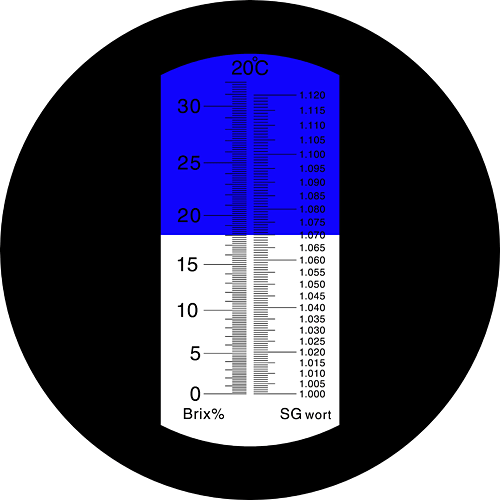J-Pizzel
Well-Known Member
Looking into buying a refractometer & read they're inaccurate in the presence of alcohol. So are these only good for OG and preboil, leaving FG for the hydrometer? Is this worth it?



EDIT: I take that back. The scale on the refractometers on ebay seem off. 10 brix shows as 1.039 and 20 brix shows as 1.077. I'm at a loss. Time for someone more knowledgeable about this than me to chime in.
Not to speak for iaefebs, but one thing you need to be careful with when looking at dual scale refractometers is that many use a linear scale that simply multiplies brix by 4 to get SG. This is fine at lower gravities but you'll be further off as the gravity increases.
A shorthand way of converting brix to SG is to multiply brix by 4. For instance, 10 brix times 4 would equal 1.040. It's actually 1.041, but still reasonably close. If you multiply 20 brix by 4 you would assume a SG of 1.080, but it's actually 1.084. The relationship between brix and SG is non linear.
I think buying a dual scale refractometer is fine as long as you find one that assumes this non linear relationship between brix and SG. They are out there. Mine only shows brix, which is fine for me because I'm always plugging the number into a spreadsheet or beersmith and the conversion to SG is right there.
Actually I just found mine: http://www.williamsbrewing.com/Product.aspx?ProductId=1758&More=1
Better picture.
Thanks for the catch. I originally started using my refractometer for winemaking and even for brewing I still tend to use a spreadsheet that doesn't use a wort correction factor. I should have known better.That would be almost true if the measurements were taken with a pure sucrose solution. (The actual gravity of a 20 Brix Sucrose solution should be 1.08298). If the solution was wort, the gravity reading should be somewhere around 1.077 - 1.078 because of the chemical composition of the wort.
Thanks for the catch. I originally started using my refractometer for winemaking and even for brewing I still tend to use a spreadsheet that doesn't use a wort correction factor. I should have known better.
Funny thing though, I've plugged 20 brix into several calculators/spreadsheets/apps and each one gives me a different result:
Seanterril.com: 1.080
Beersmith: 1.081
Morebeer: 1.082
Northern Brewer: 1.083
Onebeer.net: 1.084
Enter your email address to join: